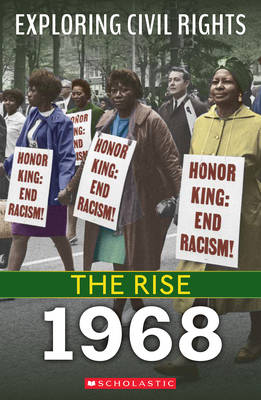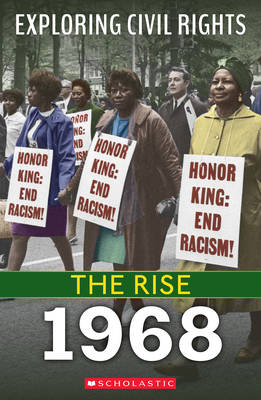
- Retrait gratuit dans votre magasin Club
- 7.000.000 titres dans notre catalogue
- Payer en toute sécurité
- Toujours un magasin près de chez vous
- Retrait gratuit dans votre magasin Club
- 7.000.0000 titres dans notre catalogue
- Payer en toute sécurité
- Toujours un magasin près de chez vous
Description
The year 1968 was one of progress and loss in the civil rights movement. In February, the Memphis Worker's Strike showed African American men protesting with powerful "I Am a Man" signs. The world stopped in April when Martin Luther King, Jr., was assassinated in Memphis, Tennessee. That same month, President Johnson expanded the historic Civil Rights Act of 1964 by implementing the Fair Housing Act to further prohibit against discrimination. And in May, 2,700 Black Americans established "Resurrection City," an encampment near the Lincoln Memorial in Washington, DC, in a 6-week long protest against the US government's inaction on poverty.
This detailed account explains why 1968 was such a critical year in the civil rights movement.
ABOUT THE SERIES:
The years from 1967 to 1978 were critical to the civil rights movement. Resistance was often met with violence against Black Americans struggling to end discrimination and segregation. Yet the courage of those yearning for equal opportunities under the law continued to persevere and set the stage for even more progress in the coming decades. Discover how this specific time period brought about change and how it still affects us as a society today.
With stunning photographs throughout and rich back matter, each book focuses on a specific year and chronologically follows the detailed events that occurred and the changes that took place.
Spécifications
Parties prenantes
- Auteur(s) :
- Editeur:
Contenu
- Nombre de pages :
- 96
- Langue:
- Anglais
- Collection :
Caractéristiques
- EAN:
- 9781338837568
- Date de parution :
- 04-04-23
- Format:
- Livre relié
- Format numérique:
- Genaaid
- Dimensions :
- 154 mm x 230 mm
- Poids :
- 258 g

Les avis
Nous publions uniquement les avis qui respectent les conditions requises. Consultez nos conditions pour les avis.






